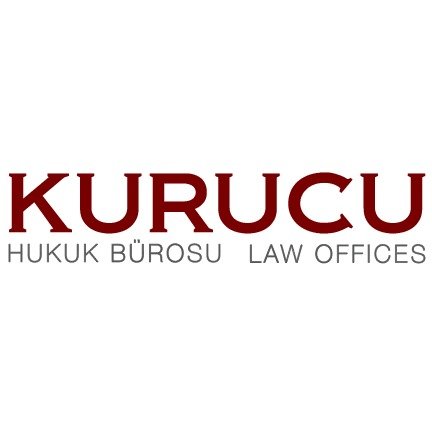Best Natural Resources Lawyers in Ankara
Share your needs with us, get contacted by law firms.
Free. Takes 2 min.
List of the best lawyers in Ankara, Turkey
About Natural Resources Law in Ankara, Turkey
Ankara, the capital of Turkey, is more than just the political heart of the country; it's also a region endowed with diverse natural resources. These include water resources, minerals, agricultural lands, and renewable energy potential. The governance of these resources is crucial for sustainable development, ensuring they are used efficiently while preserving ecological balance. Natural resources law in Turkey is designed to regulate the usage, conservation, and exploitation of these resources, providing a framework within which activities must be conducted. These laws are enforced to protect the environment, promote sustainable development, and ensure equitable use of resources among citizens.
Why You May Need a Lawyer
There are a variety of situations wherein seeking legal advice in natural resources can be beneficial. These can include:
- Securing permits and licenses for mining, drilling, or water usage.
- Legal disputes over landownership, especially when natural resources are involved.
- Navigating environmental regulations related to resource exploitation.
- Handling fines or penalties imposed due to alleged regulatory breaches.
- Negotiating contracts related to the trading or exportation of natural resources.
- Representation in disputes arising from resource-sharing agreements.
- Advising companies on compliance with environmental and safety standards.
- Legal challenges associated with the impact of resource extraction on local communities.
Local Laws Overview
Turkey's natural resources regulation is a complex web of national laws, local ordinances, and international agreements. Key aspects include:
- The Mining Law: Governs the exploration and extraction of mineral resources, specifying licensing procedures, operator duties, and safety standards.
- The Environment Law: Provides a framework for environmental protection during the extraction and use of natural resources.
- Water Management Legislation: Regulates the usage and conservation of water resources, addressing issues like irrigation, potable water standards, and flood control.
- Agricultural Policies: Outline sustainable agricultural practices and land use planning to preserve arable land and promote food security.
- Renewable Energy Laws: Encourage the development of renewable energy sources, providing incentives for solar, wind, and hydroelectric power projects.
Frequently Asked Questions
What are the main natural resources in Ankara?
Ankara's main natural resources include water bodies, fertile agricultural lands, and some exploitable minerals. The area also has potential for solar and wind energy production.
How does one obtain a mining license in Ankara?
To obtain a mining license, applications must be submitted to the Ministry of Energy and Natural Resources. The process involves compliance with environmental regulations and submitting detailed exploration plans.
What regulations apply to water usage in agriculture?
The use of water for agriculture is regulated by local water management laws, which dictate allocation, conservation practices, and irrigation methods to prevent wastage and ensure sustainable use.
Can foreign companies invest in Turkey's natural resources sector?
Yes, foreign investment is allowed in Turkey's natural resources sector, subject to national security and environmental regulations.
What is the role of the Ministry of Energy and Natural Resources?
The Ministry is responsible for formulating policies, issuing licenses, enforcing regulations, and overseeing the sustainable management of Turkey's natural resources.
How can environmental impact assessments affect resource extraction projects?
Projects involving resource extraction must conduct environmental impact assessments to identify potential harm to ecosystems, which can condition or restrict the project's implementation.
Are there incentives for renewable energy projects in Ankara?
Yes, Turkey offers several incentives for renewable energy projects, such as feed-in tariffs, tax benefits, and financial aid for research and development.
What penalties exist for violating natural resources laws?
Penalties vary depending on the violation's severity, ranging from fines and license suspension to cease-and-desist orders and criminal charges.
How are land disputes involving natural resources resolved?
Land disputes are generally resolved through negotiation initially, but they may be escalated to legal arbitration or litigation in court if necessary.
What is the impact of international agreements on Ankara's natural resources laws?
Turkey's participation in international agreements like the Paris Agreement influences local natural resource policies to align with global sustainability goals and standards.
Additional Resources
For those seeking further information or legal guidance, the following organizations and resources may be helpful:
- Ministry of Energy and Natural Resources
- The Turkish Petroleum Corporation (TPAO)
- Environment and Urbanization Ministry
- Ankara Chamber of Industry
- Local bar associations for legal referrals and assistance
Next Steps
If you need legal assistance regarding natural resources in Ankara, consider the following steps:
- Identify and define the specific legal issue you are facing.
- Contact a lawyer specializing in natural resources law to discuss your case.
- Gather all relevant documentation, such as contracts, permits, and communication records.
- Be prepared to discuss possible strategies and outcomes with your legal representative.
- Consult local agencies and organizations for guidance and potential resources.
Taking these steps can help ensure you receive appropriate legal advice and support for navigating the complexities of natural resources law in Ankara, Turkey.
Lawzana helps you find the best lawyers and law firms in Ankara through a curated and pre-screened list of qualified legal professionals. Our platform offers rankings and detailed profiles of attorneys and law firms, allowing you to compare based on practice areas, including Natural Resources, experience, and client feedback.
Each profile includes a description of the firm's areas of practice, client reviews, team members and partners, year of establishment, spoken languages, office locations, contact information, social media presence, and any published articles or resources. Most firms on our platform speak English and are experienced in both local and international legal matters.
Get a quote from top-rated law firms in Ankara, Turkey — quickly, securely, and without unnecessary hassle.
Disclaimer:
The information provided on this page is for general informational purposes only and does not constitute legal advice. While we strive to ensure the accuracy and relevance of the content, legal information may change over time, and interpretations of the law can vary. You should always consult with a qualified legal professional for advice specific to your situation.
We disclaim all liability for actions taken or not taken based on the content of this page. If you believe any information is incorrect or outdated, please contact us, and we will review and update it where appropriate.












